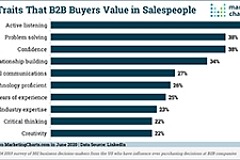 In these days of active, dynamic entrepreneurship, small businesses now make up 99.9 percent of all U.S. companies. That’s a total of more than 30.2 million businesses, according to the Small Business Administration. At least 20 percent of those have one or more paid employees, which means all those business owners have to find and set aside time to address human resources (HR) and administrative issues.
In these days of active, dynamic entrepreneurship, small businesses now make up 99.9 percent of all U.S. companies. That’s a total of more than 30.2 million businesses, according to the Small Business Administration. At least 20 percent of those have one or more paid employees, which means all those business owners have to find and set aside time to address human resources (HR) and administrative issues.
The majority of small and mid-sized businesses simply don’t have the resources or expert knowledge to properly handle HR and employee management needs inhouse.
A professional employer organization (PEO), however, provides a full slate of HR services, such as payroll, benefits management, and staff training. This leaves owners free to deal with the operations, marketing, and the financial affairs of their company.
How a PEO Works
A PEO works in conjunction with your business as your partner in the employment of workers. This makes it effectively a co-employer, although it’s not partnered with the company in any other respect.
For you, it’s like an outsourcing agreement, in that you give over the management of all HR-related processes to the PEO to act on your behalf. [quotesright]While the business is still responsible for running its operations and hiring, promoting or dismissing employees, the employees are technically working for the PEO and are reported under the PEO’s Employer Identification Number (EIN).[/quotesright]
Benefits to Smaller Businesses
Managing your human resources operation is a specialized role requiring sound knowledge of the labor laws in your state, as well as your company’s philosophy with regard to staff employment. Smaller businesses can benefit from using a PEO through the benefits outlined below.
Better Healthcare Benefits (and Savings).
[quotes]Employee healthcare insurance costs are a huge problem for small companies, which typically don’t have enough staff to get decent insurance rates.[/quotes] Insurance companies operate on the basis of user numbers, and few companies are interested in the hassle of insuring just a single worker.
One of the main goals of a PEO is to offer employees access to cost-effective, quality benefits packages, without burdening you with an expensive administrative and regulatory workload. A benefit often found is access to a professional employee counselor who you can refer an employee to if they are having a problem – or you are having a problem with them. That helps you avoid drama and involvement in personal issues.
PEO-sponsored benefit plans deliver medical, dental and vision coverage, a flexible healthcare savings account, and life/long-term disability benefits for workers. The PEO handles negotiation with carriers, enrolling of your staff, legal notifications and the Consolidated Omnibus Budget Reconciliation Act (COBRA) administration tasks. Most PEOs also help employees understand their benefits packages using online tools and a contact center.
[quotesright]The right PEO can give you a benefits package that is better than those of some of the large companies you compete with, an important consideration when trying to attract top talent.[/quotesright]
Efficient Payroll Management.
[quotes]Payroll processing and withholding tax payments, etc. can be a nightmare for the small entrepreneur who isn’t accounting minded.[/quotes] Working with a PEO, however, can reduce your stress and the costs related to these tasks. A competent PEO can automate your payroll process as well and manage all withholdings, W2s, and any garnishments. Make sure your employees are paid on time every month, regardless of how busy you are handling operations and marketing.
Robust HR Compliance.
Compliance with employment law is a complex, constantly changing process. If you don’t keep up with the aspects that apply to your industry and state, it can cost you a lot in fines and penalties.
By working with a PEO, you’ll have the guidance of seasoned HR professionals at your disposal, to help you avoid making compliance mistakes in areas such as:
State paid sick time and hiring policies.
Pitfalls here include hiring regulations – such as the recent laws preventing employers from asking about criminal backgrounds – and wage equity laws that prohibit asking about salary history during recruitment.
Partnering with a PEO will give you a definite advantage that could translate into a competitive edge against similar companies, keeping you up to date with regulatory changes and compliance.
Retirement Savings Programs.
Offering a retirement program like a 401(k) is almost impossible for a one- or two-person business. Not anymore, however, because by teaming up with a PEO, your workers (and you!) can get access to a sponsored program that might even allow you to defer compensation for retirement while you take advantage of employer matching or other contributions.
The PEO will manage all the administrative and regulatory responsibilities, which includes testing compliance, processing of distribution, and the required legal notices. The PEO will usually provide education and training for members on how to get the best retirement outcomes.
Workers’ compensation.
Managing your workers’ compensation can be complex and time-consuming, but when a PEO holds the policy it typically results in a safer work environment. That’s because the PEO is equipped to implement effective safety practices, such as pre-employment drug testing, loss control measures, and safety training.
The PEO can also offer employee assistance programs and manage injury claims, which can be overwhelming for small businesses. Even in professional service organizations like management consulting, a worker can slip, fall, and sustain an injury during the course of their work. [quotesright]When this results in loss of sales, high insurance claims and costly recovery time, it helps to have an experienced administrator on your side. [/quotesright]
A PEO can resolve workers’ compensation claims effectively through assertive management that benefits the injured worker and your company.
Revved Up Recruitment Processes.
The labor shortage and resulting competition for talent makes it difficult to find the right people, especially in industries like IT and healthcare. Large companies have fully staffed recruitment teams, but small and mid-sized businesses often must resort to posting on a job board or two to fill their positions – a practice that seldom gets the right results.
Using a PEO to rev up your recruitment processes can help you cut costs, extend your reach to the PEO’s networks, negotiate competitive salaries, and comply with best practices in interviewing and onboarding.
Limits Your Liability.
[quotes]An unexpected lawsuit can destroy a small or mid-size business, so it’s essential to keep employer liabilities in check.[/quotes] When you use a PEO, they share liability with you when it comes to employment-related claims. You’ll also benefit from their access to legal experts in every field, who can help limit liability in most circumstances.
Disadvantages of a PEO
Of course, nothing keeps coming up roses all the time, and while there are multiple benefits to using a PEO, there are a few disadvantages, too. Whether these impact your decision or not depends on your individual circumstances, but things to understand and evaluate include:
- All of these services comes with a cost. Yet this cost could be well below the cost of employing a full-time, highly qualified HR person or team to manage a small number of employees.
- Less control. While the whole purpose of using a PEO is to keep you compliant with regulations in the HR environment, it can be frustrating to be told you can’t do various things. [quotesright]On the other hand, you don’t need the resulting lawsuits of “doing it my way.”[/quotesright]
- Fewer choices. If you sign up with a PEO that is registered with a particular insurance carrier, and then they decide to change, you may not have much choice in the matter. Although if you operate without a PEO you will probably have even fewer choices. This is something to be aware of.
When you’re looking for a PEO to partner with, find out whether they charge a flat rate or individually for each service provided. If it’s the former, make sure you’re on board with the services included in the bundle. Determine whether the number of hours of service they provide is sufficient for your HR needs, and how the price increase will be affected if you need additional time.
Preferably, choose a PEO with experience in your particular industry, so you don’t have to do extensive training on how things work.
Finally, conduct an analysis of the time you’ll save by using a PEO and what that typically costs you, and calculate the projected long-term savings and benefits of the partnership. Be sure to build in some potential scenarios that could occur, even if they never have done so to date.
Resources:
- https://www.business.com/articles/what-is-a-peo/
- https://www.paycor.com/resource-center/pros-and-cons-of-using-a-peo
- https://www.insperity.com/blog/peo-benefits/
- https://www.dominionsystems.com/blog/the-three-disadvantages-of-working-with-a-peo
- https://www.entrepreneur.com/article/217866
- https://tax-guard.com/blog/professional-employer-organizations-peos-taxes-dont-assume-anything/
- https://www.sba.gov/sites/default/files/Whats-New-With-Small-Business-2018.pdf
- https://www.tasconline.com/biz-resource-center/plans/cobra-administration/
- https://www.napeo.org/advocacy/what-we-advocate/state-government-affairs/workers percent27-compensation
- https://www.peocompare.com/transform-recruiting-function-peo/
https://www.paycor.com/resource-center/pros-and-cons-of-using-a-peo














